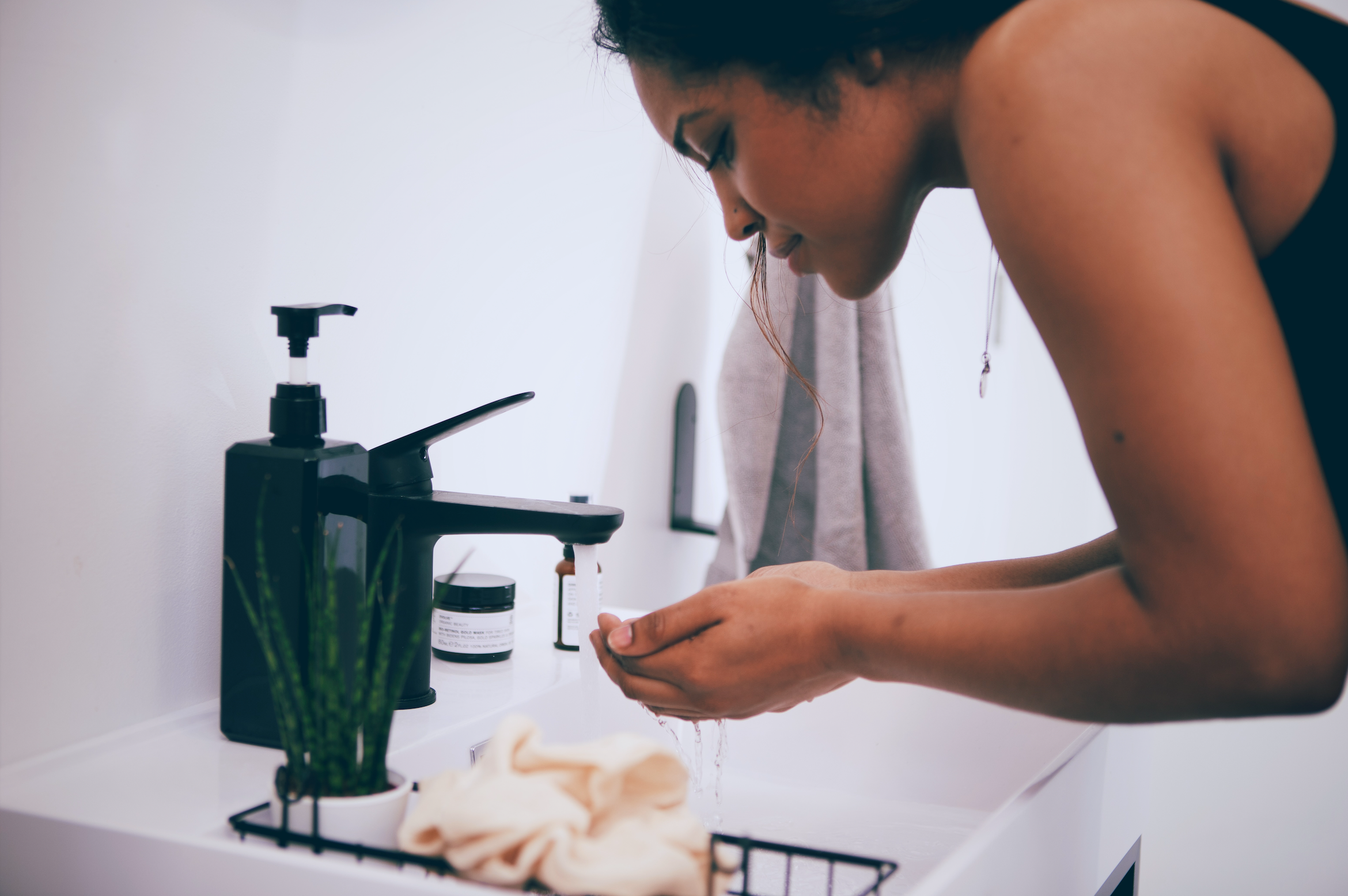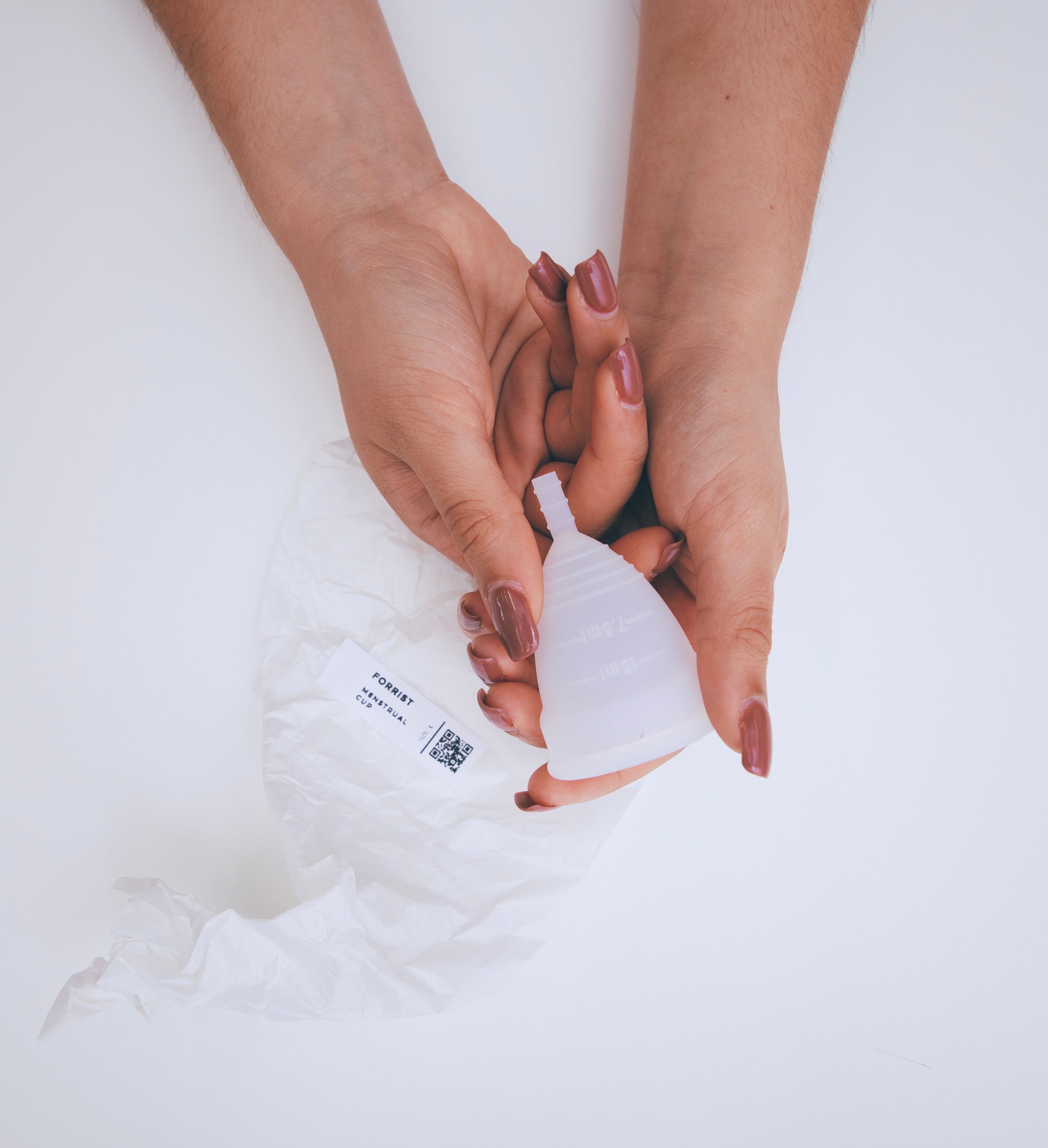

Everyone has the right to feel clean, comfortable and confident.
Unfortunately, for many, this isn’t as simple as it seems. As a result of hygiene poverty, people all around the world, including here in the UK, find themselves having to sacrifice hygiene products in order to pay for food, bills and other necessities. No one should have to choose between feeding themselves or cleaning themselves. That is why, here at the Forrist, we offer free essential items, menstrual cups and shaving oil, to do our part to draw awareness to hygiene poverty and help provide support for those that it effects.

Hygiene poverty refers to the inability to afford or access cleanliness products, an issue with many causes and many consequences. A shockingly large amount of people, including 1/5th of the UK population, report to have struggled to provide themselves with the type of hygiene products which many of us take for granted.
Hygiene poverty comes in different scales. Whereas for some it might mean they can’t groom themselves in the way that makes them feel most comfortable or in the way they feel pressured or expected to, in more extreme cases it could mean not being able to properly wash at all.
Not only does improper hygiene propose a number of obvious health risks, it can also be massively damaging to a person’s mental health. Poor hygiene can cause people to feel shameful of themselves and destroy their self-esteem. This is especially the case during times of hormonal change, such as menstruation and puberty, where hair begins to grow, acne and pimples begin to show, and your mental and emotional wellbeing is more vulnerable. To experience such feelings of degradation during these formative periods can be greatly damaging to a person’s mental health.
This has an obvious knock-on effect on peoples social lives. Children are more likely to suffer from bullying and older individuals may be deemed unprofessional or undignified for their appearance and personal hygiene when in reality they just do not have the means to clean themselves in the way they would want to. This can lead to social isolation and, as a result, further poor hygiene and mental health.
As a result of the shunned nature of this issue, many people are embarrassed to seek the aid they need. But with 14 million people suffering in poverty in the UK, The Trussell Trust have found that long before people decide to go to a food bank, they will stop buying toiletries, which gives us some perspective on the true scale of this situation.
Many people who are affected by hygiene poverty are not even aware that this is what they are experiencing. As a result, it is often referred to as a ‘hidden epidemic’. This is something we are taking steps to change with this initiative, opening up the conversation about what it is that people need, and why they aren’t able to access these things.

Our first free essential, our reusable menstrual cups, were where it all began. In the realm of hygiene poverty, period poverty is its own sprawling issue with its own individual nuances. Seeing as it is commonly perceived to be a feminine issue, a lot of the inequity and unfairness surrounding period poverty is rooted in sexism as well as classism. For those who menstruate, period products are a monthly essential, and without them, periods become much more uncomfortable, painful and tricky to deal with. This leads to difficulty in the workplace and at schools and negatively effects everyday life. Sometimes, the inability to access the correct products leads people to opt for unpleasant, degrading and even dangerous alternatives. As a result of this discomfort, and the stigma which comes with it, period poverty can have a massively detrimental effect on people’s mental health, creating an unfair feeling of shame for a completely natural occurrence.
Period poverty is a deep-rooted issue with much to unpack. For a more in-depth understanding of period poverty and ways in which to tackle it, check out our blog here (link to period poverty blog).
Although more and more schemes are being introduced to support those who need period products, and legislative change appears to be slowly occurring, as it stands, there are still far too many people who do not have access to the products they need to manage their period comfortably. This is why we want to make our store a place where these products are easily made available, and always will be.
Another reason we choose to provide menstrual cups in particular is to promote them as a sustainable alternative. These menstrual cups are completely reusable and are much better for the environment than single use plastic tampons or pads. Through this initiative, we are able to fulfil both our goals of encouraging waste-free sustainable living and provide awareness and aid for period poverty.

Our other free essential is our organic coconut shaving oil. This choice may seem more questionable at first, as it would appear to be less inherently linked to a social inequity like period poverty, we’ll explain. Societal conventions surrounding bodily and facial hair which are still present today expose a number of inequalities and unfair double standards about how people choose to present themselves. These stereotypes are further perpetuated by hygiene poverty, as those who are unable to conform to the ‘ideal’ standards of bodily and facial hair are forced to suffer the consequences of these stigma, so those who cannot afford to meet these expectations do not, and so the cycle of stigma continues.
For men, long, untrimmed beards and moustaches can be deemed shabby or unprofessional, whilst women are expected to shave their bodily hair. Of course, these are ridiculous notions. Men can rock a long beard and bushy moustache if that’s what makes them feel their best, and women should not feel pressured to shave every time they leave the house to uphold some idea that to be feminine is to be perpetually smooth. Unfortunately, however, these beliefs are still ingrained in many facets of today’s society, including workplaces and professional institutions. As a result, many people suffer because of their choice or, more relevantly, their inability to shave themselves in the way these spaces deem “necessary”. This can lead to missed opportunities, discrimination in the workplace and an unfair feeling of shame or humiliation. We want to make it clear that these views are outdated and, quite frankly, plain ridiculous.
Nonetheless, in acknowleding these aspects, we too recognise that bodily hair plays a massive part in how people perceive themselves and how comfortable they feel in their own skin. With that in mind, we believe that anyone who wants to shave, should be able to. That is why we give away shaving oil for free, as we believe that trimming, shaving, and grooming should be a choice, not a necessity – but it should also be a choice that everyone has access too.
And, our organic coconut shaving oil makes for a much more natural alternative to the majority of foams and creams on the market which are often packed with harmful chemicals. Many of these foams also contain unsustainable ingredients, such as palm oil, which is a key contributor to deforestation, and microbeads, which are devastating to marine-life. To learn more about why these sorts of shaving products are a no-go, check out our blog post here.
Our organic coconut shaving oil contains none of these destructive ingredients and comes in a reusable glass jar. In doing this, we give our forrigers who are looking to shave the opportunity to care for their skin the way they deserve to, and look after the planet the way it deserves too, at no cost whatsoever.

We are fully aware that the majority of our Forrigers may not NEED free menstrual cups or shaving oil, and don’t have any trouble accessing the hygiene products that they need. But, hey, if you can get a more sustainable alternative for free with us, why pass up the opportunity? By offering these particular products for free, it gives our customers the opportunity to try out a more eco-friendly version of some everyday products, and hopefully experience the benefits and fulfilment of such a switch, encouraging you to continue finding ways to make more sustainable changes.
But if you are still adamant you don’t need or want these particular products, we would still urge you to pick them up when you shop with us, so that you can pass them on to someone else who may need them. If you don’t know anyone personally who might benefit from these items, consider donating them to a local homeless shelter or charitable organisation. We want to encourage this approach instead of just donating the products directly ourselves in the hope that customers might see the value in small acts of aid themselves, and be inspired to take further independent action.
Because that’s what we’re all about here, conscious shopping. And with this initiative we hope to make people not only conscious of their own shopping situation, but also conscious of others. Even by just offering these free essentials as an option, we hope that customers will stop and consider how these necessities, which may be an afterthought to some, are inaccessible to many others. Hygiene poverty is an issue which escapes many people’s attention, and this lack of discussion and awareness is what perpetuates its taboo nature and makes it a ‘hidden epidemic’. Through offering these free essentials, we look to do our bit to break this stigma and make our shoppers more conscious when they spend some time at the Forrist.
Be sure to add a free Menstrual Cup and Shaving Oil on your next Forrist Forrige.